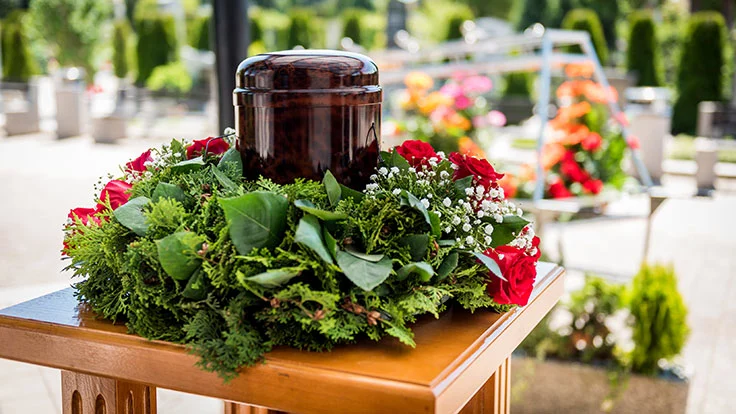When a loved one passes away, there are many decisions to make during an emotional and challenging time. One of the most significant choices is whether to opt for cremation or burial. This decision can feel overwhelming, especially if the person didn’t leave instructions about their preferences.
Both options offer meaningful ways to say goodbye, but they come with different processes, costs and cultural considerations. Understanding each can help you make the right choice for your family and honour your loved one’s memory respectfully.
After the loss of someone close, many families turn to funeral directors for guidance. Funeral directors can walk you through your options and ensure everything is arranged in a way that brings comfort and peace.
Understanding Burial
Burial is the traditional option in many cultures and religions. It typically involves placing the body in a coffin, which is then lowered into a grave at a cemetery or memorial park.
Pros of Burial
- Sense of tradition: Many people prefer burial due to family customs or religious beliefs.
- Gravesite for visits: Burial provides a permanent location for friends and family to visit and pay their respects.
- Ceremonial value: The burial process often includes a graveside service, which can be a meaningful farewell moment.
Things to Consider
- Cost: Burial is generally more expensive than cremation. Costs include the plot, headstone, coffin and ongoing maintenance.
- Land use: Cemeteries require space, which can be limited or costly in urban areas.
- Environmental impact: Some people choose alternatives due to concerns about land use and materials.
Understanding Cremation
Cremation involves using high heat to reduce the body to ashes. These ashes can be kept in an urn, scattered in a special place or placed in a memorial location like a niche or garden.
Pros of Cremation
- Lower cost: Cremation usually costs less than burial, making it more accessible to some families.
- Flexibility: You can hold the memorial service at a later date or in a location that holds personal meaning.
- Portability: Families can keep ashes or divide them among loved ones.
- Eco-conscious options: Some prefer cremation for environmental reasons, especially when paired with biodegradable urns.
Things to Consider
- Fewer physical traditions: For families who value traditional burial rituals, cremation might feel less personal.
- Handling remains: Families need to decide how they wish to store, scatter or memorialise the ashes.
- Religious or cultural beliefs: Some faiths do not approve of cremation, so it’s important to consider these aspects.
Talk to Your Funeral Director
When deciding between burial and cremation, it’s helpful to speak with an experienced funeral director. Funeral directors can offer advice based on your personal, cultural and financial circumstances. They can also explain the logistics and help you understand the different service packages available.
Whether you are planning a small private farewell or a larger memorial service, your funeral director will help tailor the experience to match your loved one’s values and your family’s wishes.
Consider Your Loved One’s Wishes
If your loved one left a will, advanced directive or spoke openly about their wishes, those preferences should guide your decision. Some people are very clear about their end-of-life plans, including whether they want to be cremated or buried. Following their wishes can offer a sense of comfort and reassurance that you’re doing what they would have wanted.
If there are no clear instructions, try to consider what they might have chosen based on their beliefs, lifestyle or past conversations.
Think About Your Family’s Needs
While the deceased’s wishes are important, the needs of surviving family members also matter. Some may want a physical place to visit and reflect, while others may prefer the flexibility that cremation provides. If family members live far apart, cremation may offer more options for holding services in multiple locations or at a time that works for everyone.
Discuss these matters openly with those affected. Sharing your thoughts and listening to others can help you reach a decision that brings comfort to the whole family.
Weigh Financial Considerations
Budget can also play a major role. Burial often includes cemetery fees, a headstone, a coffin and sometimes long-term maintenance costs. Cremation tends to be simpler and less expensive overall.
Funeral directors can provide itemised quotes to help you understand exactly what’s included in each option. This transparency makes it easier to balance emotional needs with financial realities.
Religious and Cultural Influences
Religion and culture can have a strong influence on funeral decisions. Some religions require burial, while others allow or even encourage cremation. Even within a family, different generations may have different views based on their cultural experiences.
Understanding and respecting these traditions can help avoid conflict and ensure that the funeral aligns with your loved one’s values.
Choosing between cremation and burial is a personal decision with no right or wrong answer. What matters most is finding a respectful, meaningful way to honour your loved one and support the grieving process.
Funeral directors play an important role in guiding families through these decisions. Their experience and support can ease the burden and ensure that everything is handled with care. By considering your loved one’s wishes, family needs, cultural background and budget, you can make a thoughtful decision that brings peace to everyone involved.





